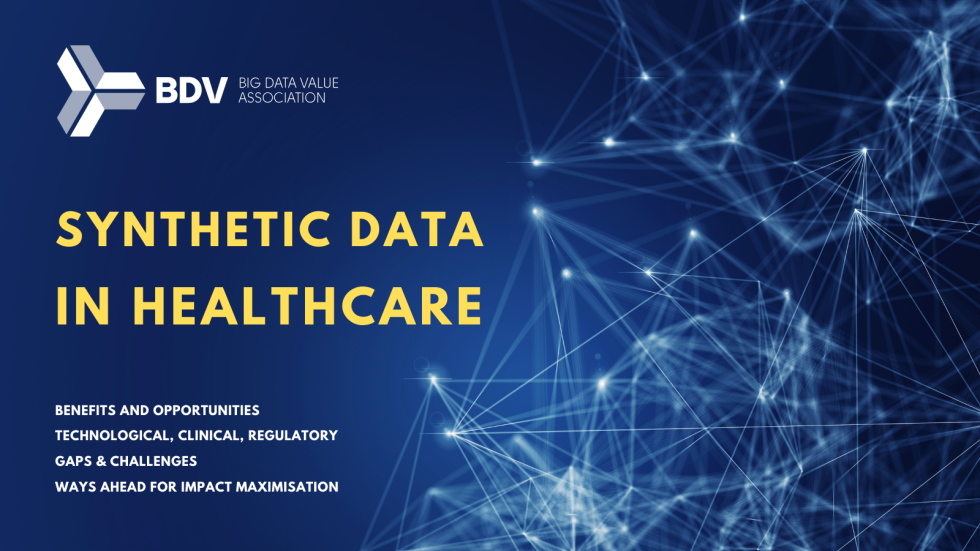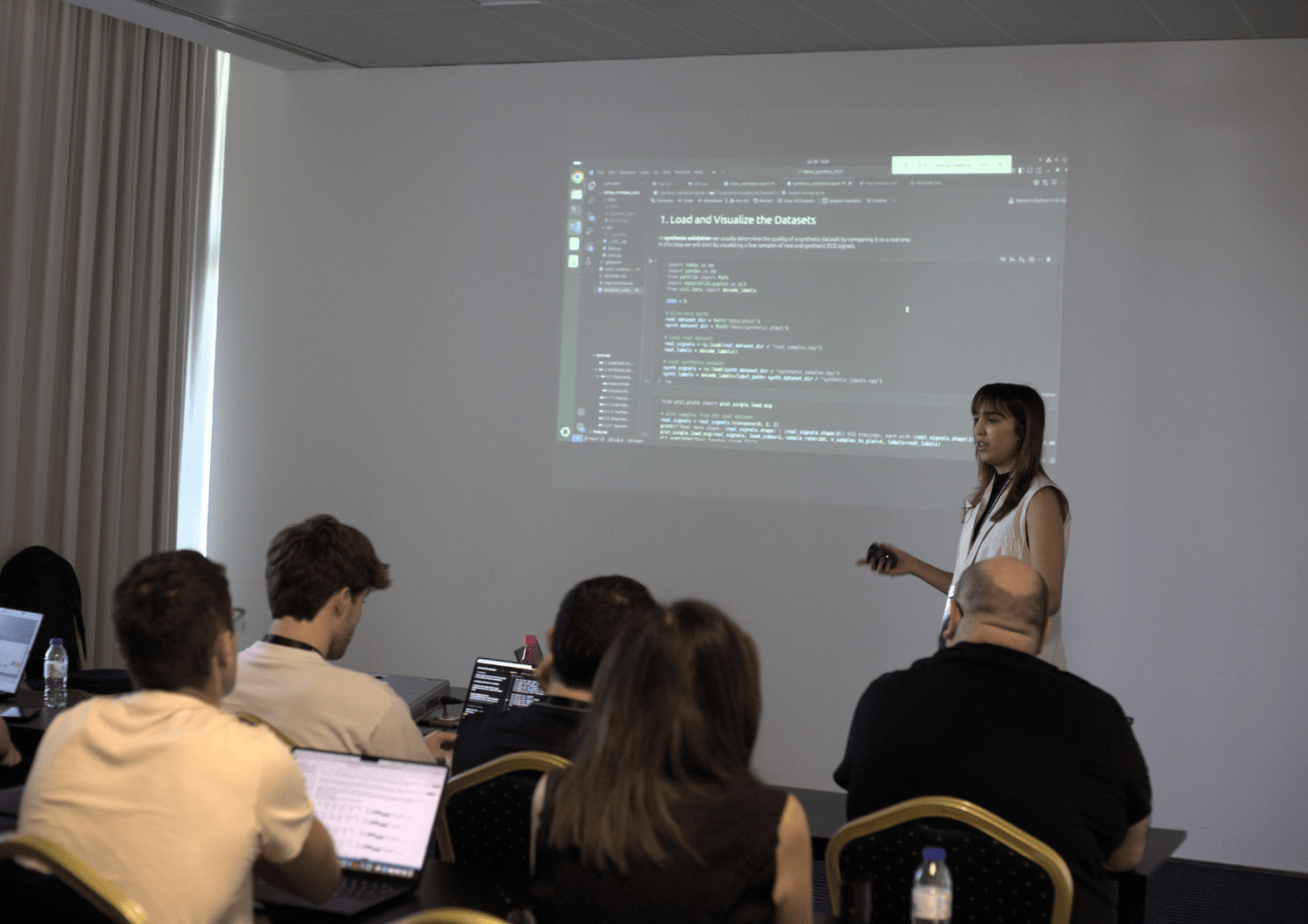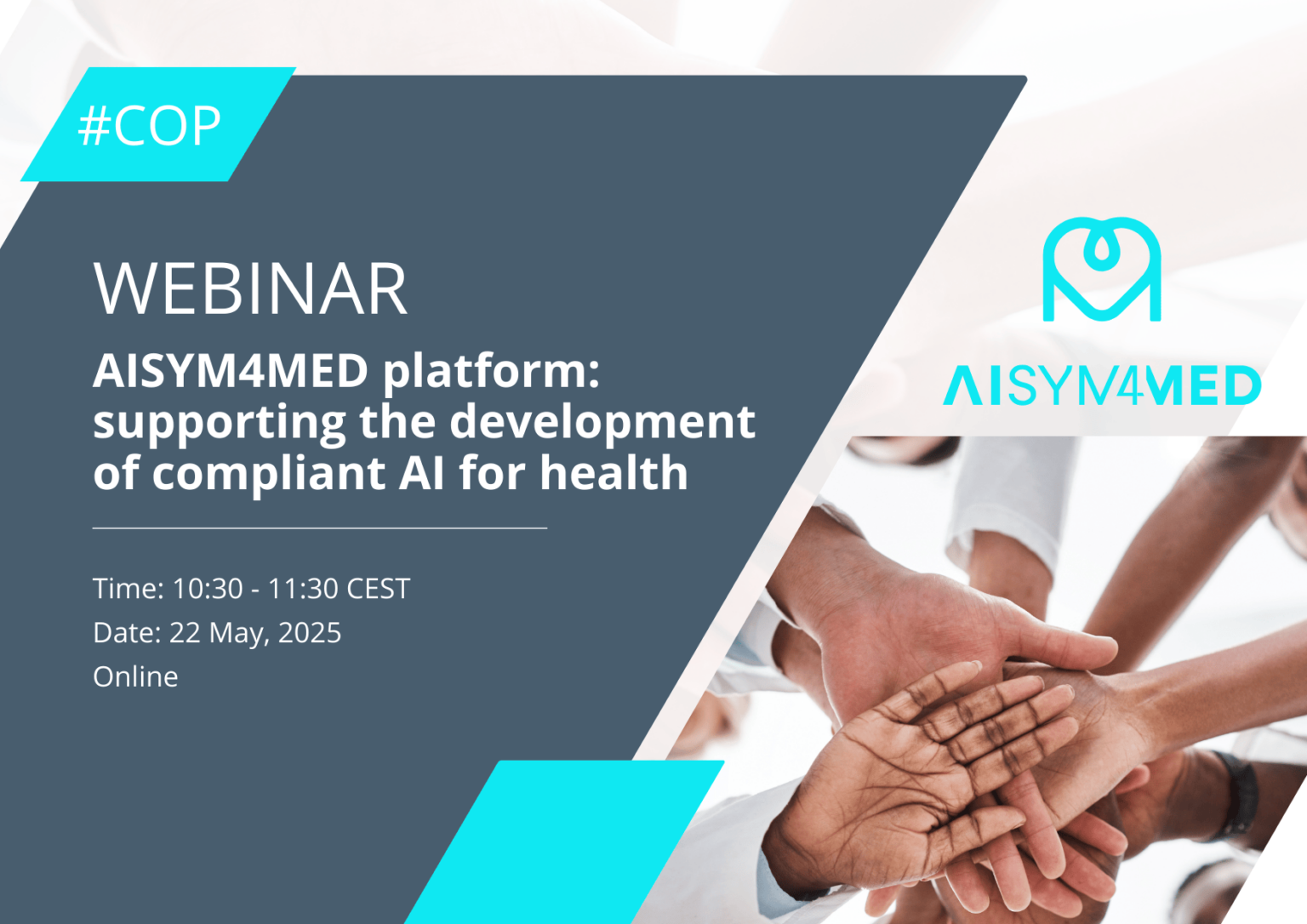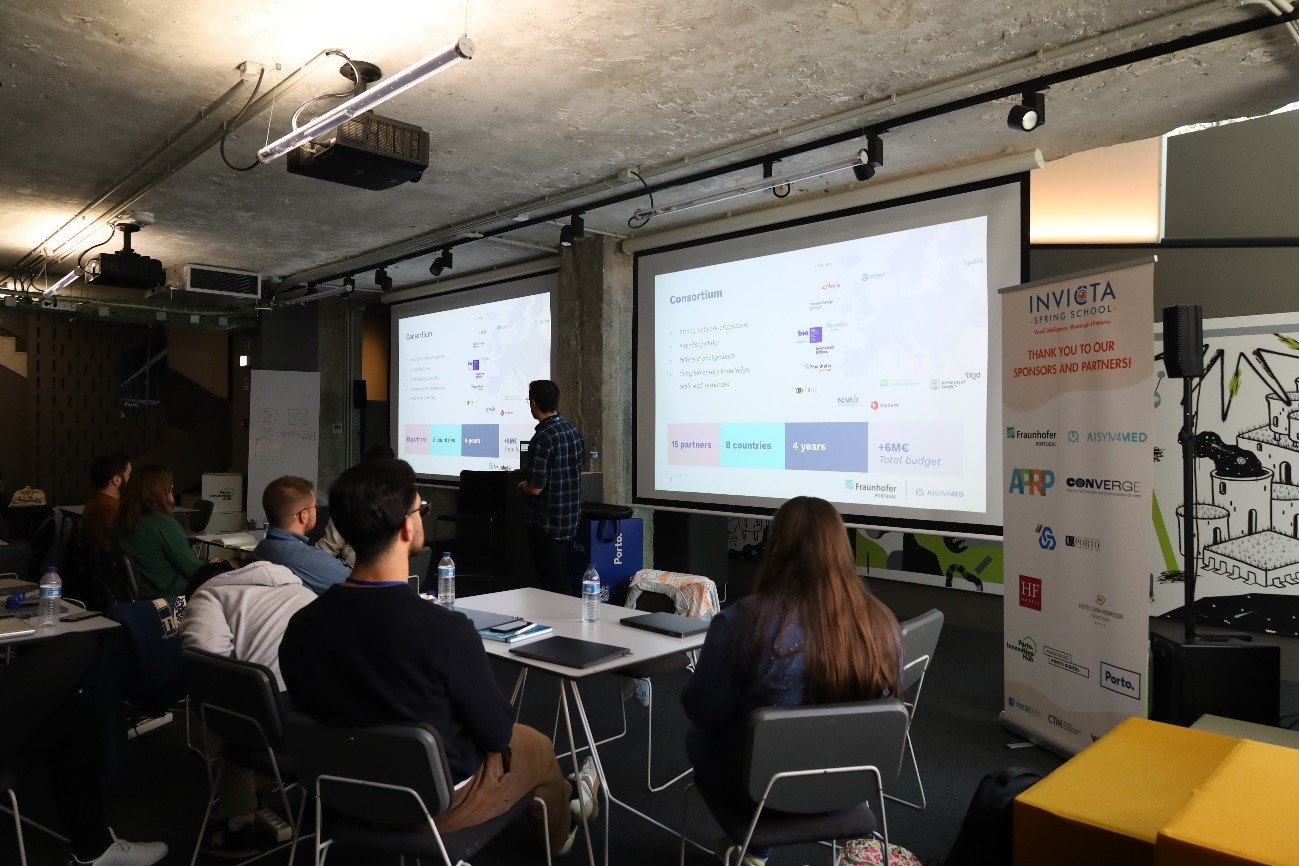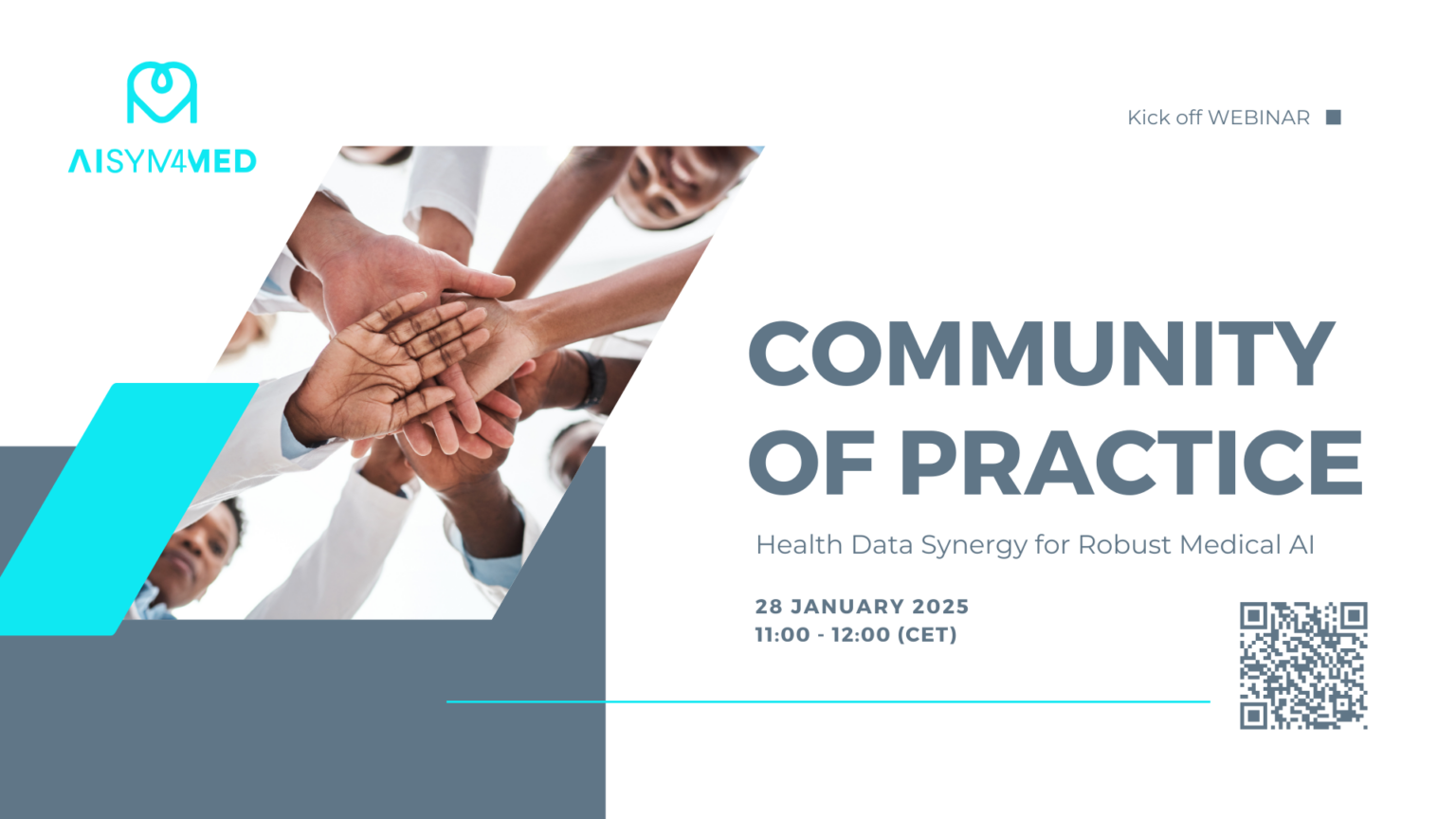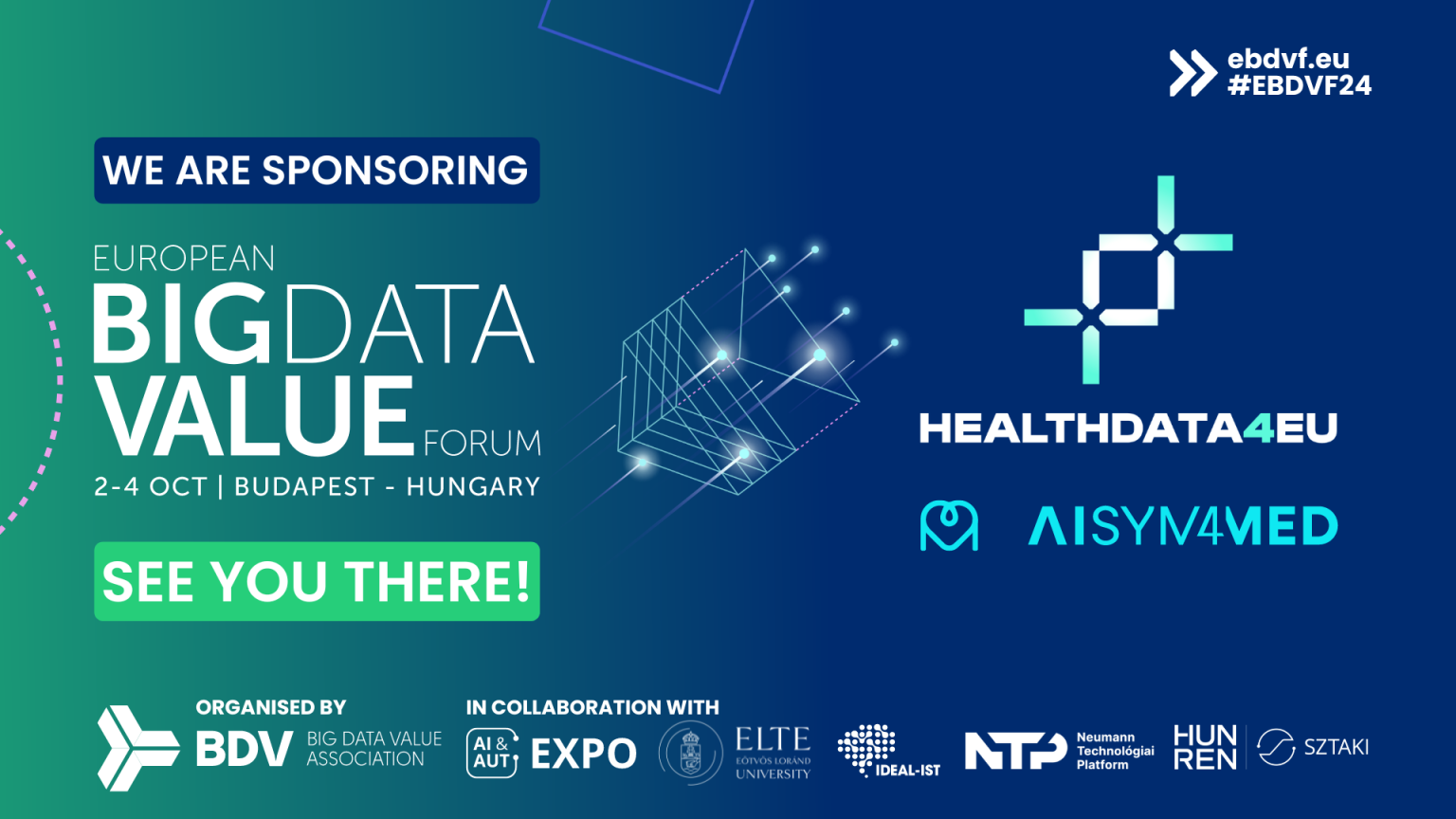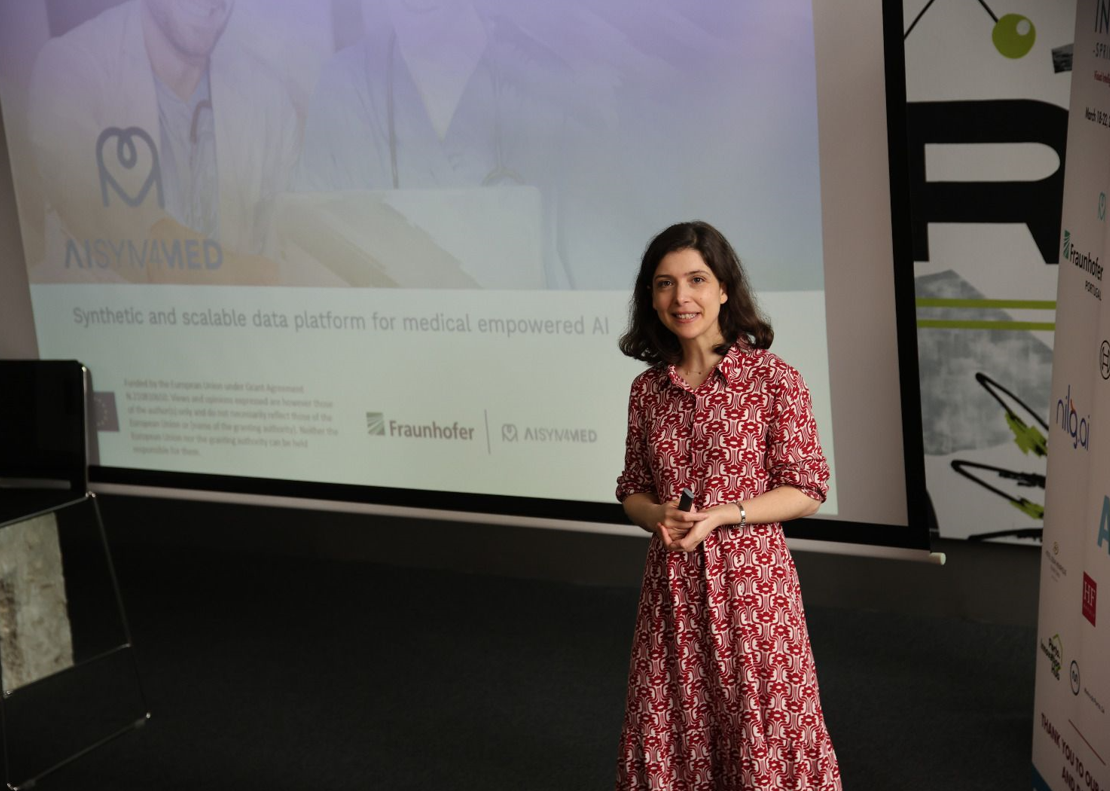AISym4Med is the platform that will change and improve the healthcare data system
AISYM4MED at ECML-PKDD
BDVA Publishes Landmark White Paper on Synthetic Data in Healthcare
pyMDMA: Open-Source Framework Enhances Multimodal Auditing of Real and Synthetic Data
#COP Session: AISYM4MED Platform: Supporting the Development of Compliant AI for Health
AISYM4MED at the 2025 Invicta Spring School
AISym4MED General Assembly and Workshop in Ankara
AISYM4MED Showcases Advances in Synthetic Data for Medical AI at HEALTHDATASUMMIT 2025
cop webinar: generative ai for synthetic health data
Health Data Synergy for Robust Medical AI – cop launch
AISYM4MED Policy Brief
AISym4MED at the Health Data Global Hybrid Summit 2024
Showcasing Innovative Research for Synthetic Data Generation from the HealthData4EU Cluster Projects: AISYM4MED, SYNTHEMA, SECURED
AISYM4MED and HEALTHDATA4EU to Participate in EBDVF 2024 in Budapest
AISYM4MED Symposium Explores AI in Clinical Practice
AISym4Med Project General Assembly Held in UMC Utrecht
AIsym4Med Symposium on AI in clinical practice: registrations opened
AISym4Med: Advancing Population Health Management with AI
JOINING FORCES FOR HEALTH
AISym4Med presented at INVICTA Spring school
AISYM4MED GENERAL ASSEMBLY IN ZARAGOZA
MICCAI 2023 Conference in Vancouver
AISym4MED first crash-course on Generative AI
The EU passed new regulations for enforcing the GDPR
MAIN OBJECTIVES
Define a distributed architecture for health data collection, aggregation and analysis, capable of supporting secure access, exploitation, synthesis and analysis of data, while integrating tailored interfaces responding to the needs of the different target users.
Enhancing experimentation capacities via the expansion of datasets with reliable synthetic data, leveraging on AI to mirror the characteristics of existing datasets without real reference to anyidentifiable individual, encompassing replication of images, tabular data, and time series, including auditingand quality assessment by clinicians.
Define a dedicated solution to guarantee trustworthiness and data privacy, leveraging on an in-depth analysis of platform privacy and ethical requirements, in combination with a dedicated architecture and technological solutions to guarantee the usability of the platform.
Validating data management and experimentation functionalities against realistic use cases, with the direct involvement of target end-users and implementing iterative feedback loops in order to maximize the usability and effectiveness of the platform.
Ensuring the scalability and exploitation of the platform beyond the project implementation, in order to foster actual uptake of the platform by target stakeholders in operational environments, and guarantee the achievement of the expected impacts.
MAIN FIGURES
ML algorithms need an immense amount of data to have high performance in real-world
scenarios.
Data accessibility is hindered by several issues, such as privacy and anonymization concerns.
Most healthcare data does not follow global standards, is incomplete, of low-quality and
hard to be assessed, being dispersed through different databases.
Reduction of data bias as it is directly connected to the diversity of human beings’ biology.
Insufficient representation of rare pathologies in most scenarios.
Different privacy layers needed to responsibly handle medical data containing very personal and sensitive information
Lack of sociodemographic content or of pathological data especially in rare pathologies.

